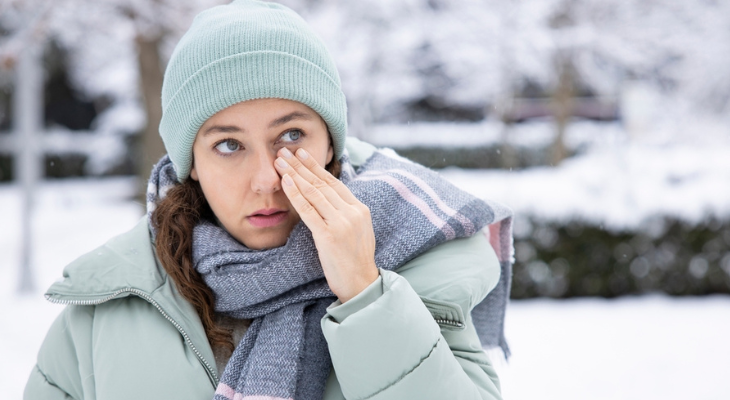
Are You Struggling to Keep Dry Eye Symptoms Under Control?
It's amazing how much dry eye can affect the quality of your life. When your eyes are constantly itchy, burning, and red, it's difficult to focus on the words on your laptop screen, enjoy a walk on a windy day, or even sleep comfortably. Even worse, your eyes may feel dryer or moister depending on the day or season.
Why Dry Eye Is So Difficult to Treat
A thin layer of tears constantly covers your eyes. Unfortunately, your eyes may become too dry if there aren't enough tears to lubricate your eyes. The condition can happen if you don't make enough tears, your tear film is low-quality, or the tears evaporate too quickly. Although drugstore eye drops can be helpful, the relief they provide is often only temporary.
Treating dry eye can be a challenge due to many factors, including:
- Your Age. Your eyes naturally become dryer as you age. In fact, most people over 65 report dry eye symptoms, according to the American Optometric Association.
- Blowing Air. Blowing air from car vents and indoor heating vents may cause tears to evaporate more quickly than usual.
- Contact Lenses. Dry eye is a common complaint among contact lens wearers. More than 50% of people who wear contact lenses report problems with dryness, according to a 2020 report in Contact Lens Spectrum.
- Winter Weather. Lower humidity in the winter, combined with cold temperatures and wind, can dry out your eyes. Low humidity can be a problem both indoors and outdoors.
- Pollution and Irritants. Exposure to air pollution or strong chemicals may irritate the eyes and decrease your tear film, causing dry eye symptoms.
- Poor Sleep. Trouble sleeping could be a contributing factor if you have dry eye. Poor sleep quality can affect tear production and the amount of salt in your tears, according to a study in Cureus published in 2022. Salt is needed for tear production and also helps prevent tears from evaporating too quickly.
- Medication. Some medications may dry your eyes, including antihistamines, decongestants, hormonal medications, beta blockers and anti-depressants.
- Chronic Diseases and Conditions. Your eyes may feel dryer than normal if you have rosacea, Sjogren's syndrome, blepharitis, meibomian gland dysfunction, a thyroid disorder, lupus, vitamin A deficiency or rheumatoid arthritis.
- Stress. Dry eye is yet another effect of stress and anxiety. Feeling stressed could decrease tear production, leaving your eyes dry and irritated.
- Blink Rate. Blinking every few seconds spreads the tear film over your eyes. Have you noticed that your dry eye symptoms seem to be worse when you use your laptop or cellphone? People tend to blink less when using digital screens, which can lead to dry eye.
With so many factors affecting dry eye, it's not surprising that it's hard to find relief from your symptoms.
How to Improve Your Dry Eye
Reducing stress, improving sleep quality, staying away from air vents, wearing glasses or sunglasses on windy days, and making an effort to blink more could help you keep your eyes moist. Unfortunately, sometimes these changes alone aren't enough to make a difference.
Luckily, your optometrist can determine the cause of your condition and identify factors that may be worsening dryness, like content lens wear or working outside. After your eye doctor narrows down contributing factors, he or she can recommend treatments that may relieve your symptoms and also offer tips for managing dry eye.
Do you need help with your dry eye symptoms? Contact our office to schedule a visit with the optometrist.
Sources:
American Optometric Association: Dry Eye
https://www.aoa.org/healthy-eyes/eye-and-vision-conditions/dry-eye?sso=y
Contact Lens Spectrum: 2020 Report on Dry Eye Diseases, 7/1/2020
https://www.clspectrum.com/issues/2020/july-2020/2020-report-on-dry-eye-diseases
Cureus: The Association Between Dry Eye and Sleep Quality Among the Adult Population of Saudi Arabia, 3/2022
https://www.ncbi.nlm.nih.gov/pmc/articles/PMC8969758/
Review of Ophthalmology: Dry-Eye Studies: Beware These Pitfalls, 5/2/2011
https://www.reviewofophthalmology.com/article/dry-eye-studies-beware-these-pitfalls
